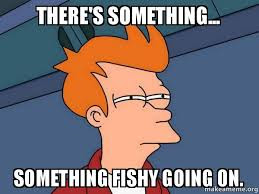I've been trying to read this. Not a huge fan of the field of behavioral economics (or here; subscription required). Don't get me wrong, yes, it provides some critiques of elements of the mainstream (marginalist) approach, regarding essentially the notion of individual rationality, as did the work of, say, Herbert Simon, in the past. People don't tend to act in a rational way, at least not in the substantive way that is prescribed by the mainstream.Evidence on the notion of universal selfishness is weak. Experiments have undermined the notion that the primary motivation of human action is self-regard. The ultimatum game, which has been played in many different countries and cultures, suggests that humans have a strong preference for fairness. Sam Bowles, who provides a short blurb for the book's back-cover, is one of the several progressive economists that thinks that the critique of rationality developed by behavioral economics is revolutionary, and that it is the source of an alternative to the mainstream (or probably more in line with his views of an evolution of the mainstream; he once said in a lecture at the University of Utah that Marx and Arrow said essentially the same things).
Topics:
Matias Vernengo considers the following as important: Akerlof, Behavioral Economics, Bowles, Rationality, Shiller, Simon
This could be interesting, too:
run75441 writes Republicans repeatedly exploit people’s biases to win elections
Matias Vernengo writes Barkley-Rosser Jr. (1948-2023)
Chris Blattman writes Every war has both psychological and strategic roots, and we don’t need to choose just one explanation
Chris Blattman writes Innovations in activism (and other ways to scale your efforts)
I've been trying to read this. Not a huge fan of the field of behavioral economics (or here; subscription required). Don't get me wrong, yes, it provides some critiques of elements of the mainstream (marginalist) approach, regarding essentially the notion of individual rationality, as did the work of, say, Herbert Simon, in the past. People don't tend to act in a rational way, at least not in the substantive way that is prescribed by the mainstream.
Evidence on the notion of universal selfishness is weak. Experiments have undermined the notion that the primary motivation of human action is self-regard. The ultimatum game, which has been played in many different countries and cultures, suggests that humans have a strong preference for fairness. Sam Bowles, who provides a short blurb for the book's back-cover, is one of the several progressive economists that thinks that the critique of rationality developed by behavioral economics is revolutionary, and that it is the source of an alternative to the mainstream (or probably more in line with his views of an evolution of the mainstream; he once said in a lecture at the University of Utah that Marx and Arrow said essentially the same things).
My view, and I promised a more detailed discussion when I'm done with the book, is that this is just one more iteration of the marginalist analysis trying to be relevant by introducing imperfections, the previous one being the idea of information economics, often associated with Joseph Stiglitz and George Akerlof, who is the co-author of the book with Robert Shiller. Stiglitz referred to his information economics as "Post Walrasian and Post Marxian Economics." It was very much in the Walrasian tradition, however.
In the case of behavioral economics, the notion that individual behavior is what matters continues to be central, even though the assumptions on how agents behave differ. The methodological individualist notion that all explanations must start from the microeconomic unit of analysis, and that microfoundations are central, prevails. The predominance of the individual over the whole. That is substantially different from what I would see as the main methodological stance of heterodox economics. Behavior is often discussed as being underpinned by social classes, as in the surplus approach tradition, and history and institutions are the basis for behavior. Markets often get stuck in sub-optimal positions, not so much because agents behave irrationally (even though they do, and behavioral insights might be incorporated in heterodox models), but because they work in different ways than assumed in marginalist analysis.
Issues of causality are considerably more important than behavioral issues. It is the structure of causality between variables that implies that effective demand (rather than Say's Law) holds, meaning that investment determines savings, for example. The same can be said about the determination of prices, where subjective elements are considered as given (and discussed at a lower level of abstraction, in historical and institutional fashion), and analysis proceeds from the objective elements associated to the technical conditions of production and a given distributive variable (again distribution being discussed at a lower level of abstraction, where the historical and institutional factors that affect labor legislation, the strength of unions, etc. play an important role).
PS: Besides these problems the book by Akerlof and Shiller starts by quoting Adam Smith invisible hand out of context, which is really problematic, and shows that the profession should go back and learn the history of its own discipline.

